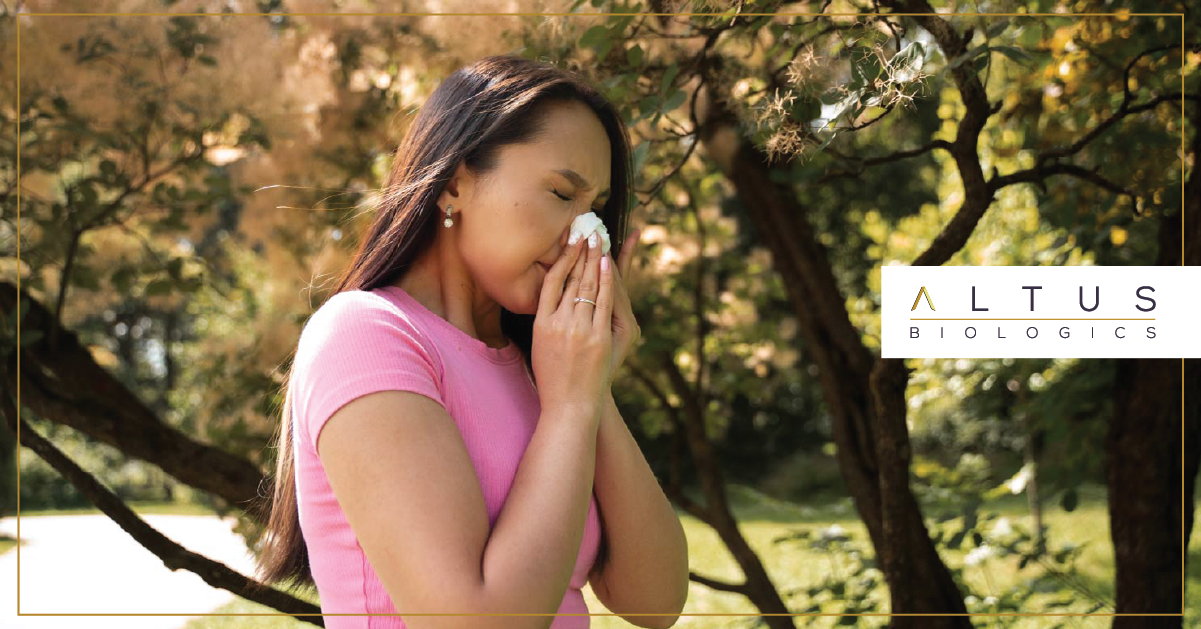Managing Spring Allergies with Lupus: Understanding Triggers and Tips for Relief
As the flowers bloom and the days grow warmer, spring can feel like a breath of fresh air, unless you’re managing lupus and spring allergies at the same time.
If you’re living with systemic lupus erythematosus (SLE), you’re already aware that your immune system functions a bit differently. Add seasonal allergens into the mix, and suddenly that lovely spring breeze may feel more like a storm.
Understanding how seasonal allergies affect your body and your lupus can empower you to stay healthy, minimize flares, and enjoy the season with confidence.
How Spring Allergies Can Trigger Lupus Flares
Lupus is an autoimmune disease, which means your immune system mistakenly attacks healthy tissue. When spring arrives, airborne allergens such as pollen, mold spores, and even dust mites can trigger an overactive immune response.
For most people, exposure to these triggers results in symptoms like sneezing, congestion, itchy eyes, or coughing. But for you, as someone with lupus, this immune response can cause more than just inconvenience; it can act as a trigger for a lupus flare.
The stress that allergens place on your immune system can create a cascade of inflammation throughout your body, potentially worsening lupus symptoms such as joint pain, fatigue, skin rashes, and even affecting organs like your heart.
The Immune System, Allergens, and Autoimmune Activity
When your immune system encounters allergens, it sees them as threats and reacts by releasing histamines and other inflammatory compounds.
In someone with a healthy immune system, this response is usually temporary. However, if you have lupus, your immune system may not “turn off” appropriately.
That heightened and prolonged immune response can tip the balance and push your body into a flare state.
This is why allergy management is not just about reducing discomfort; it’s about protecting your overall health and reducing the risk of lupus exacerbations.

Practical Tips for Managing Spring Allergies with Lupus
Here are some smart, simple strategies you can use to take control of your symptoms and stay well this season:
1. Limit Outdoor Allergen Exposure
- Check pollen counts daily and try to stay indoors during peak pollen times, which usually occur in the afternoons and early evenings, as well as on windy days.
- Keep windows closed at home and in your car.
- Shower and change clothes after being outside to remove lingering pollen from your skin and hair.
2. Use Air Purifiers and Keep Your Home Clean
- HEPA filters can significantly reduce indoor allergens.
- Dust regularly using damp cloths, and vacuum with a HEPA-filter vacuum to trap allergens.
3. Stay Hydrated and Rested
- Your body fights inflammation better when it’s well-hydrated and rested.
- Gentle movements, such as stretching or yoga, can help alleviate fatigue and joint stiffness without overexertion.
4. Use Allergy Medications Wisely
Some over-the-counter allergy medications are generally safe, but it’s always a good idea to check with your doctor before adding new medications to your regimen, especially if you’re taking immunosuppressants.
5. Ask Your Doctor About Biologic Therapy
Biologic therapy has become a powerful ally in managing lupus by targeting specific parts of the immune system involved in the disease.
Some biologics also have benefits for those dealing with overlapping conditions like asthma and chronic allergies.
If you’re not already on a biologic, discuss with your rheumatologist whether it could help you better manage your lupus symptoms, especially during seasons when allergens are more intense.
And if you’re currently receiving biologic therapy, staying consistent is crucial. Skipping or delaying treatment could make you more vulnerable to seasonal triggers and increase the risk of a flare.
Mark your calendar, set reminders, and keep those appointments – it’s an essential part of your spring wellness plan.

Take Charge of Your Spring
You deserve to enjoy the beauty of spring without fear of flare-ups. Lean on your healthcare team, talk openly about your symptoms, and explore options like biologic therapy if you haven’t already.
With the right strategies and support, spring can be a time of renewal and wellness—not just for the world around you, but for you as well.
Disclaimer
The information provided on this blog regarding symptoms and potential treatments for illnesses is not intended to diagnose, treat, cure, or prevent any disease. Altus Biologics does not in any way guarantee or warrant the accuracy, completeness, or usefulness of the information published in its blog and will not be held responsible for the content of any blog publication.
You should always consult your primary care physician for specific medical advice.
